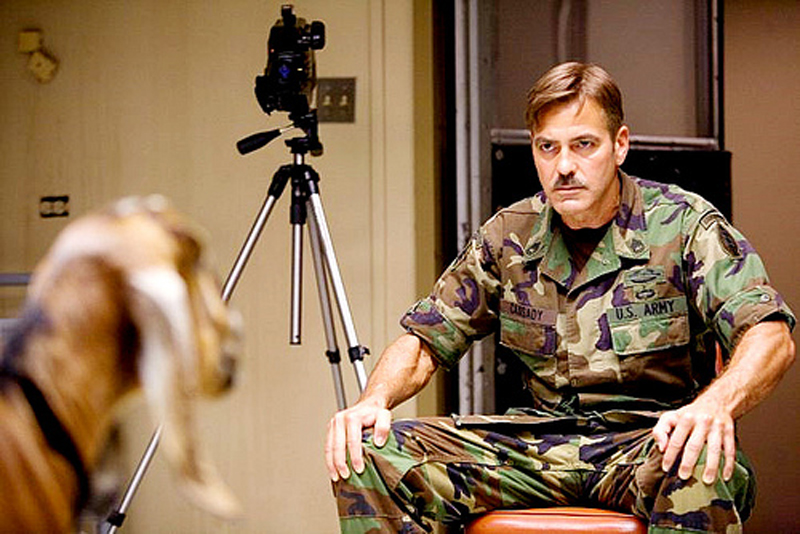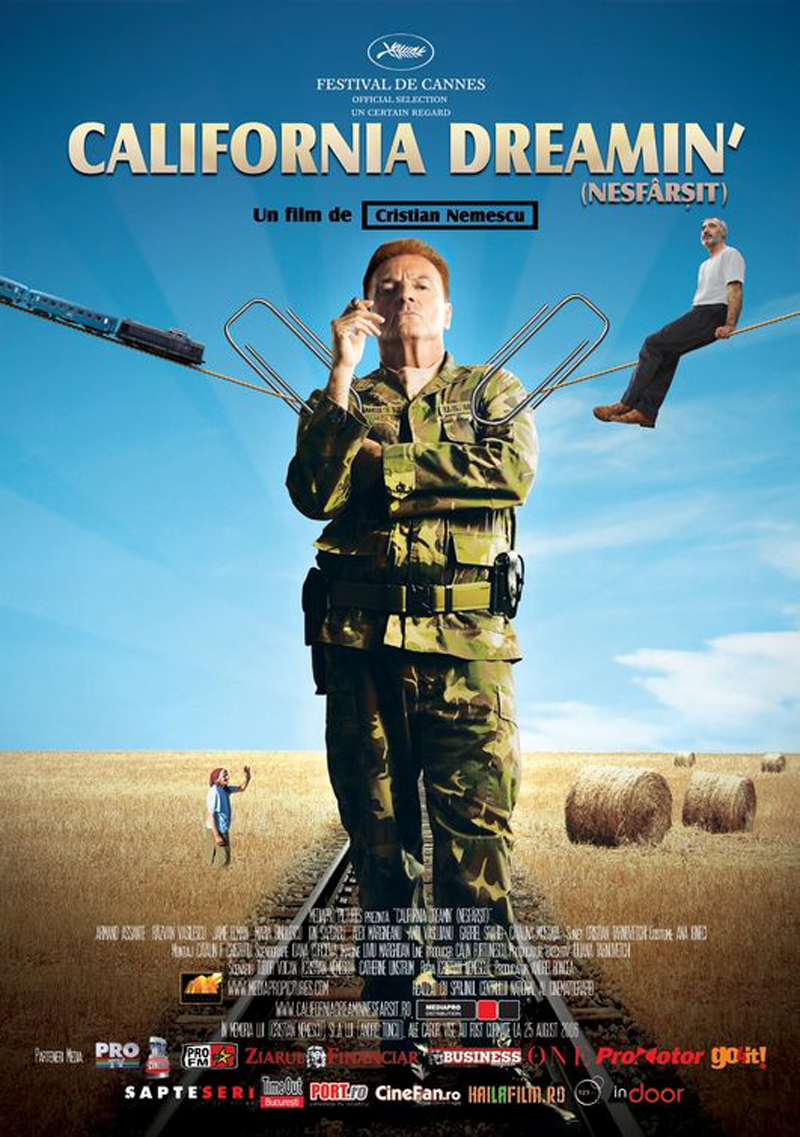Donald Mugisha is a founding member of Ugandan film-making
collective Yes! That’s Us. Their debut feature Divizionz is a
refreshingly authentic portrait of African inner city slum life,
centred around a group of young friends striving to make it in the city
as musicians.
Donald Mugisha
Could you start by talking a bit about your film-making
collective Yes! That's Us - how you formed, how you work together, and
how you came to make this feature?
We're a guerrilla filmmaking collective, and there are five of us. I
studied Mass Communication for three years at Makerere University, the
biggest university in Uganda, but I dropped out in the final year,
because I felt uncomfortable with what I was studying. The course put a
lot of emphasis on public relations and journalism, and eventually I
just became too frustrated with it. My old man had bought a small VHS
video camera around this time, so I began experimenting with that. And
then I met these other guys, some of whom were working in banks, others
in offices, basically all nine-to-fivers. But they were also frustrated
artists - some were illustrators and writers. So we got together to
work on a range of projects, specifically on music videos. From around
2000-2004 we designed and developed a specific model of approaching the
production of music videos. At the time there wasn’t much equipment we
could use, so we had to shoot fast, and the concepts had to be really
simple – one or two locations, we had to shoot outdoors and use natural
light. We’d shoot for one or two days, edit it within five days, then
package it really nicely and just put it out there. I would say the
music videos were our film school. We kept switching roles as well, so
if one day you were editing, the next day you’d be the cameraman or
DoP. After a while we started doing some short experimental films – and
then I came up with the idea for this feature, Divizionz, and I began
writing, primarily to examine the division between the middle and lower
classes.
Obviously we didn't have much money to finance the filming, but as
we’d had some success with the music videos, we thought we could use
the same model here. We’d been saving money from the videos, but we
didn’t have a lot. So again we shot outdoors, and we shot fast. The two
main characters in the film are played by established musicians (Bobi
Wine and Buchaman), so we had worked with them before, but this was the
first time they had acted. So we did a month-long acting workshop with
the four leads, and we borrowed a lot from method acting. We knew it
was important for these four characters to connect with and understand
each other. Then once that was done we went out to the location – we
shot the film where the cast grew up. But because we were shooting
guerrilla style and they were local celebrities, the whole village
would come out and crowd round to watch whenever we showed up! So to
deal with this, we’d go to our location, set up the shot, plan the
scene, and then leave. The actors would go off and hide somewhere; we’d
go back, set up the cameras and call them when we were ready to start
filming. They'd rush back, we'd shoot very quickly, and that would be
that!
One thing I liked about the film is that it offers an
authentic portrait of an Africa that we rarely see in this country.
Often when we see Africa on film over here, it’s from an outsider's
perspective or has an overtly political agenda, so this feels
refreshing. When you were filming, did you imagine you’d be showing the
film internationally at Festivals like this, or did you have a local
audience in mind?
Primarily our audience was local, but also to a certain extent we
thought that we needed to have a film with a universal message, which
is friendship and ambition. We wanted our primary audience to relate to
it on the level of recognising the locations from their own lives. But
actually the environment was also fresh to the local middle classes,
because they rarely venture to the poorer areas. So to them it would be
exotic, despite the fact that they live nearby – they live very much on
the other side of the fence. And then internationally people would look
at it as completely fresh, it’s not an environment you often see
represented anywhere.
I read that each of the four main characters display
characteristics that are stereotypical of a particular region of
Uganda. I think I missed some of those references, as others might, so
could you elaborate?
The four characters originally come from four different parts of the
country, but their families have all set up in this specific ghetto.
You have Kampla city centre, and ghettos scattered all around the
outskirts. Bobi Wine’s character is from the East – people from the
East are known to be not very knowledgeable, they don’t look deeply
into anything. Then the girl is from the West, and the stereotype is
that people from the West are arrogant, very loud and opinionated, so
they’ll speak with a lot of energy and conviction. She represents that.
There’s a guy from the North, and people from the North are known to
have no self-esteem, they’re quite shy, can’t express themselves. Then
the other guy, Buchaman’s character, is from the centre of Kampala, and
people there are known to be smart and sharp, but also quite sleazy.
Also the characters together represent another division. One group has
been brought up by mothers and fathers, and have been given some
guidance in life. Then you have the other group who have had no
guidance, who rob people, smoke, cause chaos in society. And much as
they live in the same place and are friends, we also wanted to examine
that world, and how the two groups clash with and influence each other
– you may have guidance, but I don’t, and we’re friends now because we
have a specific goal, but eventually I could easily corrupt you and you
become like me, or vice versa.
The characters are united by a desire to escape from their
poor neighbourhoods, and they see music as a way to achieve that,
perhaps the only way. How common is that viewpoint in reality?
Music in these specific neighbourhoods, these ghettos, is a huge
unifying factor. It gives the youths a lot of self-esteem and hope –
it’s something to believe in. The perfect example is Bobi Wine himself
- he grew up in similar circumstances to these characters, but escaped
that world because of music. He was just like these characters in the
film, but he latched onto the music and it gave him confidence, and
brought him success. If you visit one of these ghettos, you won’t hear
any R&B or rap or pop – everyone listens to locally produced
Dancehall music, which is what people themselves by, and might allow
them to fulfil their wildest dreams.
But then by the end of the film when some of the characters
have achieved success, we see that this has caused friction and
discontentment - was that intended as a warning or a moral message?
I wouldn’t say we intended anything moral - I just wanted to examine
reality. I’ll give you an example. There’s another musician in Uganda
who grew up in that environment, who started with nothing and made it
big – but he grew up in a different ghetto to Bobi Wine. These two are
always fighting, always saying ‘I’m bigger than you, I’m better than
you!’, and physically fighting. So we were examining friendship and
ambition, but I was also in a way just holding a mirror to reality –
this is just another aspect of their relationship
I suppose male friendships in particular are often built around rivalry and one-upmanship.
But also with two of the characters, the girl and the guy from the
North – they have a conflict, but it’s quite cheeky and flirtatious.
Obviously you shot this film guerrilla style, funding it
yourselves, but is there any support or funding for filmmakers in
Uganda?
It’s like any other African country really – there’s not much coming
from the government or any other organisation – there’s really nothing!
And you basically have to design your own model if you want to make
anything happen. I’ll give you a good example. The music industry in
Uganda doesn’t have any real structure, what you might imagine as a
conventional structure. But it’s huge, and makes a lot of money. The
way it works as an artist is that you go to a studio and record a song.
When you’re done with this, you put it on a CD and take it to what we
call computer points – there’s over five or six hundred of these, all
over the place. Customers come and choose the songs they want to be
burnt onto a CD – so they make their own compilations. Obviously this
should be illegal, and of course technically it is – it’s piracy. But,
this is how musicians benefit: if you upload your song and video onto a
computer at 10am, by the end of the day it has scattered all over the
country. And if it’s a good song people will demand a follow-up, and
will want to see the artist perform. So the promoters will come to you
as a musician and book you for shows, and you’ll start to make money
from live performances. So similarly in film, you have to design your
own model – our model was to shoot fast, shoot cheap, make it as high
quality as our resources allowed, get it out to a domestic audience by
any means, and if enough people see it and like it we’ll hopefully be
able to finance the next one.
I read that you grew up watching a lot of Hong Kong and US action films – have any of these influenced your own work?
I grew up on a farm, and watched a lot of these films. But towards
the end of my university days, I started moving away from these genre
films. This film was actually influenced by Rossellini, Truffaut, and
Fernando Meirelles – these three really influenced the realism of the
film.
Paul O'Callaghan, BFI





























